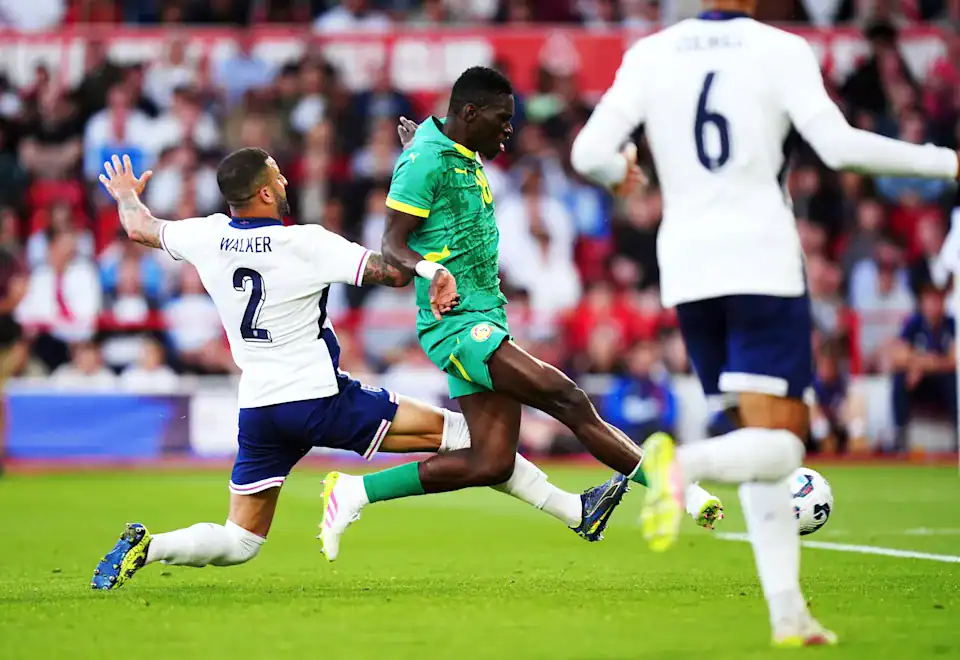Ismaïla Sarr finds his footing as Senegal’s reliable attacking leader

Ismaïla Sarr is finally beginning to embody the maturity many had long hoped for in a Senegal shirt.
Now 27, the Saint-Louis native has already experienced several lifetimes’ worth of scrutiny and expectation with the national team.
Bursting onto the scene at 18, Sarr was once hailed as a prodigious talent — a title earned during his early years with FC Metz and solidified through his rise at Stade Rennais and eventual move to Watford in the Premier League.
But despite his club exploits, his performances with Senegal often left fans frustrated, frequently questioning whether he could truly be counted among the national side’s most dependable figures.
That narrative, however, has begun to shift.
Following a standout 2024–2025 season with Crystal Palace, in which he netted 12 goals and provided 8 assists — and played a key role in the club’s FA Cup triumph — Sarr has finally transferred his club form onto the international stage.
No longer just a player capable of occasional brilliance, the winger now appears increasingly consistent and influential in Senegal’s frontline.
His recent outings during the international break further underscore this transformation.
Introduced just after the hour mark against the Republic of Ireland, Sarr made an immediate impact, scoring a crucial equaliser 20 minutes later to rescue a result for Senegal.
He followed that up with an assured display against England, this time deployed on the left flank. His incisive movement and smart interplay caused repeated problems for the Three Lions’ defence, and it was his composed finish in the 40th minute that drew Senegal level.
It was his 16th goal in 73 caps — and notably, the first time he had scored in back-to-back matches for his country.
But his contribution wasn’t limited to goals.
Against England, Sarr — rated 7/10 by local media — impressed with his unselfish play, solid link-up work, and even defensive discipline, tracking back when needed.
It was a performance full of maturity and intelligence, far from the erratic displays that once defined him.
Rather than trying to force moments of brilliance, Sarr looked comfortable as part of the collective, thriving within the system, and showing the kind of composure that has elevated his status at Crystal Palace under manager Oliver Glasner.
A turning point in his international trajectory came earlier this year.
During the March international window, following an underwhelming display against Sudan and being benched against Togo, Sarr had a frank discussion with national team manager Pape Bouna Thiaw.
Sources close to the camp suggest the coach challenged Sarr to become more than a winger — to grow into a leader on and off the pitch.
It appears the message resonated.
Sarr’s recent form with the Lions of Teranga reflects a player ready to shoulder greater responsibility, one who has taken criticism on board and emerged stronger.
If this version of Ismaïla Sarr becomes the norm rather than the exception, Senegalese fans may finally see the player they always believed he could be — not just a talent, but a leader.












